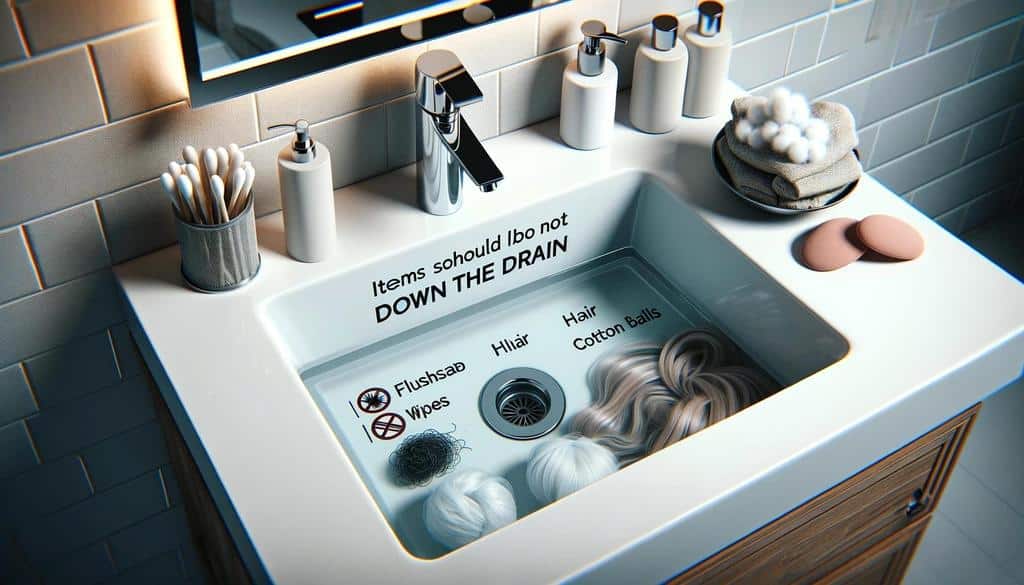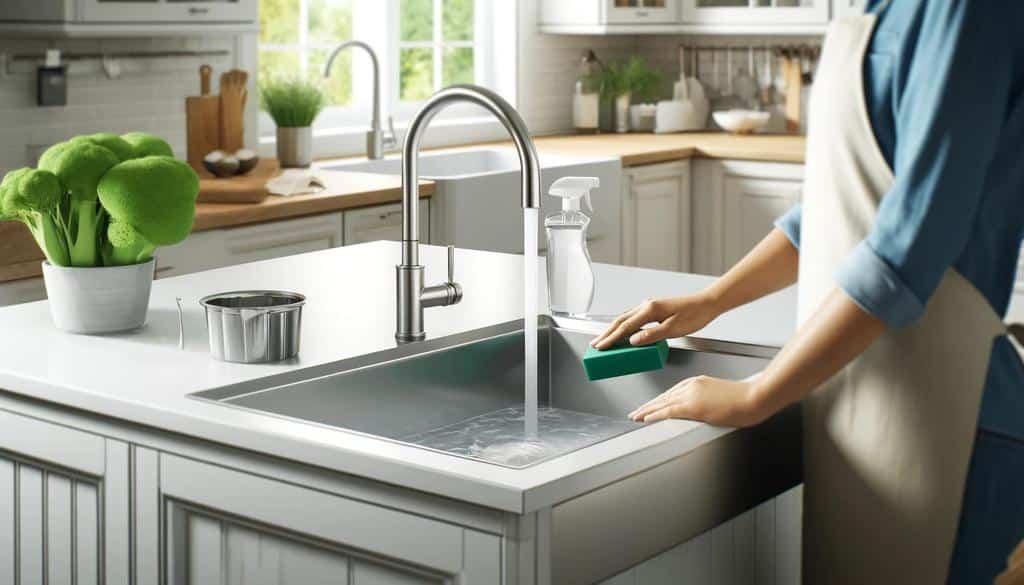Maintaining clean and clear drains is vital for a healthy home environment. Many people unknowingly dispose of items through their sinks and toilets, which can lead to serious clogs. If left unattended, these clogs can escalate into significant plumbing issues, causing damage that requires expensive repairs. Fortunately, professional clog removal services can effectively tackle stubborn blockages. Understanding what should and shouldn’t go down your drains and following regular cleaning practices can help you avoid these problems and maintain a smoothly operating plumbing system.
What Not to Put Down Your Kitchen Sink
Grease and Fats
While it might seem convenient to pour leftover cooking grease down the drain, it’s one of the worst things you can do. Grease and fats solidify when they cool, creating a sticky substance that attracts and traps other debris inside your pipes. Over time, this sticky buildup can lead to severe and stubborn blockages that can be difficult to remove.
Coffee Grounds
Coffee grounds are another common culprit in kitchen drain clogs. These tiny particles can accumulate and mix with grease or oils in your pipes, creating a thick, dense mass that’s difficult to dislodge. Instead of rinsing them down the sink, dispose of coffee grounds in your compost bin or trash. This simple change can prevent many future clogs and help keep your kitchen drains flowing freely.
Eggshells
At first glance, eggshells may seem harmless, but they can cause severe problems in your drains. The shells’ inner membranes tend to bind with other debris in your pipes, creating blockages that are difficult to clear. Also, when eggshells break up, they can form a gritty residue contributing to clogs. To prevent these problems, it is recommended to compost eggshells or throw them away in the garbage instead of rinsing them down the sink.

Avoid These Items in Your Bathroom Drains
Hair
Hair is a common reason for blockages in bathroom pipes, especially in shower and sink drains. Strands of hair can quickly accumulate over time, forming tangled masses that trap soap scum, shampoo residue, and other particles. Placing a drain cover to capture hair and frequently clearing it can significantly decrease the chances of blockages. For existing stubborn hair clogs, a plumbers’ snake or professional plumber may be necessary to clear the blockage.
Flushable Wipes
Contrary to their name, flushable wipes like toilet paper don’t dissolve in water. Instead, they remain intact as they travel through your plumbing system, often combining with other waste to form substantial blockages. It can affect your home’s plumbing and cause issues in the broader sewage system. The safest way to dispose of flushable wipes is by throwing them in the trash.
Cotton Balls and Swabs
Despite their small size, cotton balls and swabs can create significant issues for your drainage system. They can absorb water, swell, and become lodged in your pipes, leading to severe clogs. Instead of flushing them, always dispose of cotton balls and swabs in the trash. This easy task can assist in maintaining the clarity and functionality of your drains.

Keeping Drains Clear: Best Practices
Preventing buildup and ensuring your plumbing system functions smoothly requires knowing how often and how to clear your drains. Here are some best practices to follow:
Weekly Maintenance
Running hot water through your sinks and showers every week can help dissolve any grease, soap scum, and other residues that might have started accumulating in your pipes. This regular flushing with hot water helps prevent minor blockages from turning into significant clogs, keeping your drains clear and free-flowing.
Monthly Maintenance
It is recommended that baking soda and vinegar be added to the drain every month. Add about half a cup of baking soda to the drain, followed by one cup of vinegar. Afterward, rinse with hot water. This natural method effectively cleans your drains without the harshness of chemical cleaners.
Annual Maintenance
A professional’s check and cleaning of your pipes once a year can catch and fix any problems that regular upkeep wouldn’t see. Experts utilize specific tools and methods to guarantee the maintenance of your plumbing system. This annual checkup can catch potential problems early, saving you from costly repairs in the future.
The Environmental Impact of Improper Disposal
Numerous items that are often disposed of in the drain can cause harm to the environment. Household cleaners, chemicals, and medications washed down the sink can contaminate water supplies, affecting aquatic ecosystems and human health. Proper disposal of these substances is crucial for environmental protection. Being mindful of what you put down your drains protects your plumbing and contributes to a healthier environment.
Effective Drain Cleaning Solutions
Essential tools like a plunger or a plumber’s snake can often resolve minor clogs. These tools can dislodge blockages without damaging your pipes. Nevertheless, enzymatic cleaners could be a good option for clogs that are harder to remove. They utilize natural enzymes to dissolve organic matter without damaging your pipes. It is crucial to refrain from using chemical drain cleaners too frequently, as they have the potential to damage pipes and negatively impact the environment.
Why Professional Help Is Sometimes Necessary
Even with diligent maintenance, some clogs are too persistent or severe to handle alone. Skilled plumbers possess the knowledge and specific tools to handle the most challenging clogs effectively. Hiring a professional can ensure that any underlying issues are correctly addressed, preventing future problems. Professionals can also provide valuable advice and preventive measures to keep your drains clear long-term.
Keep Drains Clear: Habits for a Functional Plumbing System
Proper disposal habits and regular maintenance are essential for keeping drains clear and functional. Avoid certain items and clean them regularly to prevent clogs and maintain a smoothly running plumbing system. By being proactive and contacting experts, you can keep your drains working well, safeguarding your home and the environment.





